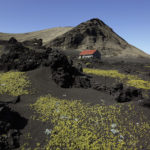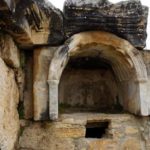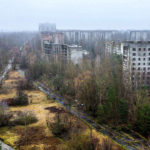Forbidden Places Around The World Where You Should Never Set Foot
1 Pine Gap, Australia

The Joint Defence Facility Pine Gap is the top-secret Australian-American military base in the remote desert near Alice Springs. Known simply as Pine Gap, only officials are permitted on the property. No one really knows what actually happens within the walls of the US satellite surveillance base.
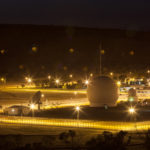
We know that it was built in the 1970s and about 1000 employees work within the walls. The base collects various bits of intelligence and one of the primary objectives is to provide early warnings of a ballistic missile launch. Unless you have the proper clearance, there is zero chance you will ever tour the base.
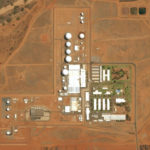
2 Kadykchan, Russia
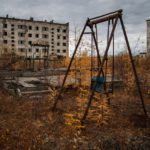
Kadykchan is a Russian coal-mining town in Siberia. Gulag prisoners built the settlement during World War II, which housed 11,000 residents at its peak. Things took a turn in the 1990s with the fall of the Soviet Union and a decreased demand for coal. Jobs were scarce, and many residents fled the town.
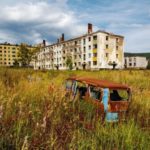
In 1996, a methane explosion took the lives of six people, and the mines shut down altogether. Now, Kadykchan is an abandoned city filled with empty buildings and remnants of the lives of the people who once lived there. Not the best place to take a holiday.
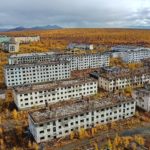
3 Lascaux Caves, France

The Lascaux Caves are a complex of caves in the Dordogne region of southwestern France known for having Palaeolithic cave paintings. The images are 20,000 years old and comprise mostly paintings of large native animals in the region.

Declared a UNESCO World Heritage Site, the caves were closed to the public in 1963, because visitors exposed the paintings to a series of fungal infections that put the markings in peril. Tourists can’t enter and security guards have limited access. They can only spend a predetermined amount of time in the caves to preserve the paintings.
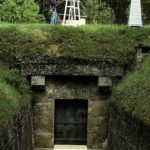
4 The Dome of the Rock, Jerusalem

The Dome of the Rock was built in the seventh century when the Muslims conquered Jerusalem. It is the third holiest site for Muslims and is the gold-topped Islamic shrine of the Old City next to the Al-Aqsa Mosque.
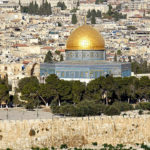
In a controversial move, non-Muslims were not permitted on Temple Mount until 1967. Now, non-Muslims are allowed to visit the site Sunday through Thursday, but are forbidden from praying. All visitors must dress modestly. Men should wear long pants and shirts that cover their shoulders. Women need to dress in long pants or a skirt and cover their shoulders and elbows. No Jewish religious artifacts are permitted on the site.

5 North Sentinel Island, India

Some places are off-limits to tourists because the location is so remote. The North Sentinel Island is in the Bay of Bengal and is home to the Sentinelese Tribe, an indigenous population. It is one of the world’s most forbidden locations because the tribe remains untouched by the outside world.
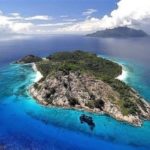
The island’s population is so protective of their land that tribesmen shoot arrows at any intruders, keeping them safe from modern civilization. They live under protection from the Indian Government, prohibiting visitors from even approaching the island. The tribe killed an American citizen in 2018 when they attempted to encroach on their land.
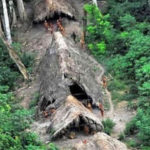
6 Snake Island, Brazil

There are several places on earth where humans should rethink visiting. Ilha da Queimada Grande, also known as Snake Island, is one location that you can’t and shouldn’t visit. The island houses a massive population of snakes. According to TheTravel, estimations say that there’s one snake in each square meter of the island.

Not only are these snakes terrifying to look at, but Snake Island is home to one of the world’s most deadly species. A single bite from the golden lance-head viper can melt the flesh around the wound. The Brazilian government took drastic steps and closed the island to tourists.

7 Chernobyl, Ukraine
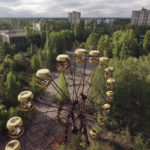
Another location that could be dangerous to your health is the site of the world’s deadliest nuclear accident, Chernobyl. It’s become a popular tourist spot, despite emitting potentially unsafe levels of radiation. This is one destination you’d be wise to avoid if you ask us. Ukrainian officials opened the area to visitors almost a decade ago, with tight restrictions.
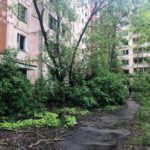
No one can tour the disaster site on their own. According to the Ukrainian website, “Ongoing radiation-safety concerns dictate that tourists are restricted to certain areas and are not permitted to wander on their own.” No, thank you!
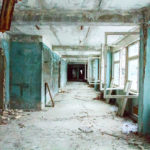
8 Centralia, Pennsylvania
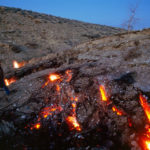
Centralia, Pennsylvania, was a busy mining town, but an underground fire transformed it into a smoldering wasteland. In 1962, the once-prosperous city forever changed when a landfill fire raged in a coal seam beneath the town, spreading to mine tunnels under the streets.
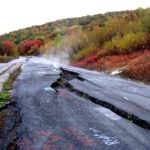
The flames raged for years, creating unsafe living conditions for the residents. Congress paid to move families, condemned the buildings, and stripped the town’s zip code. Now, it’s a toxic wasteland and only a few holdouts remain. The mine fire has been burning for over 50 years, making it an unsafe place to visit.

9 Area 51, USA
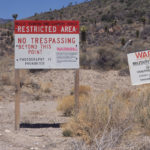
One of the most mysterious places in the United States is Area 51. The top-secret military outpost is on a remote patch of desert just outside of Las Vegas, Nevada. The US government forbids visitors from entering the site.

Many conspiracy theorists believe that the facility houses evidence of an alien spaceship that crashed in a field in Roswell, New Mexico. Area 51 is actually a U.S. Air Force training site that was used by the CIA to spy on the Russians during the Cold War era. Either way, it’s restricted to tourists and shrouded in secrecy.
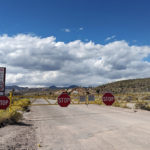
10 Pluto’s Gate, Turkey
Deemed a dangerous location during ancient times, “Pluto’s Gate to Hell” in Hierapolis, Turkey, was a sacrificial site. Locals believed the cave was the portal to the underworld, according to Greco-Roman mythology. Pilgrims sacrificed animals and slept near the pools to have dream-like visions.
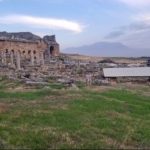
According to NBC News, an archeological team led by Francesco D’Andria, professor of classic archaeology at the University of Salento, unearthed the ruins in 2013. They discovered the opening of the cave was filled with lethal mephitic vapors, which killed the animals and had hallucinogenic properties. The Gate to Hell is a place no one in their right mind should visit.
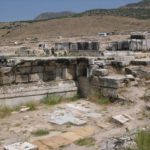
11 Mausoleum of Qin Shi Huang, China

The tomb of the First Qin Emperor is in the Shaanxi province of China and was built by the first emperor of China, Qin Shi Huang, who died in 210 BC. The mausoleum houses 7,000 statues of terra-cotta warriors and horses, as well as chariots and weapons, all constructed to protect the Emperor in the afterlife.

The Chinese government forbids access to the tomb because excavating the site would most likely cause irreparable damage. While the mausoleum is fascinating, this is one ancient location that we will probably never see with our own eyes.

12 Pripyat, Ukraine
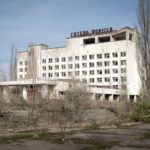
Everyone knows about the site of the Chernobyl disaster, but the town of Pripyat, Ukraine, is another location that no one should visit. It’s an abandoned town that was evacuated after the explosion at the Chernobyl Nuclear Power Plant. Residents fled after becoming ill following the explosion.
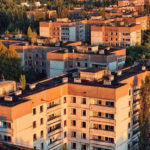
Visitors can see the town, but only with a guided tour. “The abandoned town of Pripyat appears particularly haunting. There are relatively few locations that have seen this level of desertion, so for those looking for unusual travel experiences, it’s an interesting case,” Steph Millington, Intrepid Travel’s Europe product manager, told Forbes magazine.
13 Agdam, Azerbaijan
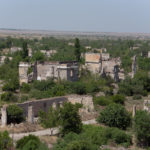
Another no-man’s-land is the abandoned city of Agdam, Azerbaijan. How about a history lesson? Armenian forces captured the town during the first Nagorno-Karabakh war in 1993. It was near the front lines of the growing tensions between Armenian forces and Azerbaijan. Tens of thousands of Azerbaijanis left their homes when Armenian forces shelled the town and captured the city.
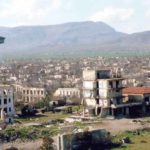
Now, the streets are empty, and the buildings are in ruins. All these years later, the town remains vacant. Dilapidated mosques and homes litter the landscape, making Agdam a location that is no longer welcoming to tourists.
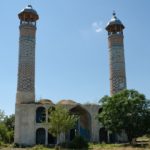
14 Wittenoom, Australia

Tourists are being strongly urged to avoid the toxic town of Wittenoom. Built on an asbestos mine, the Western-Australian city was shut down in the 1970s. Once a mining town, it’s classified as a contaminated site after former residents and tourists died, and from being exposed to dangerous levels of asbestos.

According to the BBC, the state government has referred to Wittenoom as “the greatest occupational health and safety tragedy in Australia—comparable to the Chernobyl and Bhopal catastrophes.” This is one location that is seriously bad for your health and we don’t advise to go there.

15 Craco, Italy
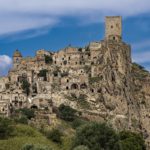
The cliff-side town of Craco is an abandoned commune in the southern region of Basilicata. The residents fled the city in 1980 after the town built a sewer and water system with faulty pipes, which caused devastating landslides. Now, Craco is a ghost town and just a shell of the place it once was.
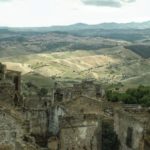
Despite being a dangerous destination, tourists still flock to the hills to explore the empty town. Visitors can go on a guided tour of the area. They have shot many movies on location, like Quantum of Solace and The Passion of the Christ.
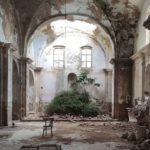
16 Svalbard Global Seed Vault, Norway
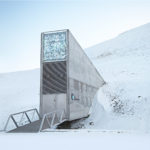
The Global Seed Vault in Norway, also known as “the Doomsday Vault”, is another place that is closed to the public. It stores 100 million seeds from all over the planet. Should something catastrophic to our plant kingdom, the seeds will be there to restore the world’s vegetation.
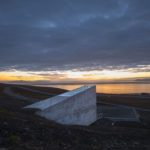
Constructed in 2008, they designed the vault to survive natural disasters, from earthquakes to fires. Scientists predict that the Global Seed Vault could last up to 200 years. This is an important survival location for our planet, and it’s another place that none of us will visit in our lifetime.

17 Vatican Secret Archives, Vatican City

The secret archives of the Vatican house a treasure trove of important documents pertaining to the Catholic church. 53 miles of underground shelves are closed to the public and scholars need special permission to enter the building. Some items stored go back as far as the 8th century.

The Chinon Parchment, which is the minutes of the trials of the Knights Templar, is housed there, among other historical documents. The forbidden archives are so secretive that there are rumors of the Catholic church hiding extraterrestrial beings within the space. Either way, chances are, you’ll never enter the premises in your lifetime.

18 Poveglia, Italy
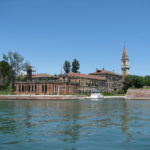
The creepiest place on this list is Poveglia Island, which is in northern Italy, between Venice and Lido. This location has a dark and twisted history. In 1776, during the Bubonic Plague, officials sent infected people to what locals call “The Island of Death”.
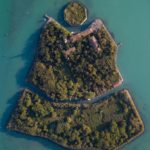
If that isn’t scary enough, during the early 20th century, a psychiatric hospital surfaced on the island. After being accused of conducting cruel treatments, the hospital shut down in 1968. Now, it’s illegal to set foot on Poveglia and it’s said to be haunted. You couldn’t pay us to visit the “island of ghosts”.
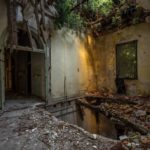
19 Fort Knox, USA
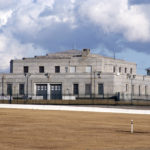
Fort Knox is one of the most intensely guarded locations on earth because it houses precious metal bullion reserves for the United States. According to the United States Mint, “The actual structure and content of the facility is known by only a few, and no one person knows all the procedures to open the vault.” Security is obviously tight as it stores half of the U.S. gold reserves.
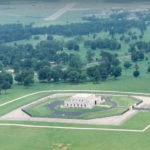
Visitors aren’t allowed to enter the facility. It’s a well-guarded place that will never be open to the public. With concrete-lined granite walls reinforced with steel, no one could ever attack Fort Knox, much less visit there.
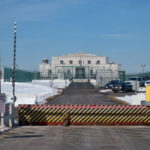
20 Surtsey Island, Iceland
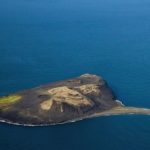
Surtsey Island is located off the southern coast of Iceland and erupted from the Atlantic ocean in 1963. The volcanic core built up an island that continued to erupt for years. According to Britannica, it’s now the location of an Icelandic and American long-term biological research program.
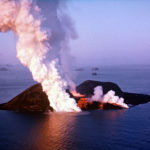
NESCO designated Surtsey a World Heritage site in 2008, noting the scientific opportunity for researchers to observe the “colonization process of new land by plant and animal life.” In 1965, the government named the island after the fire god of Icelandic mythology. Its remote location and harshness make it impossible for tourists to visit.
